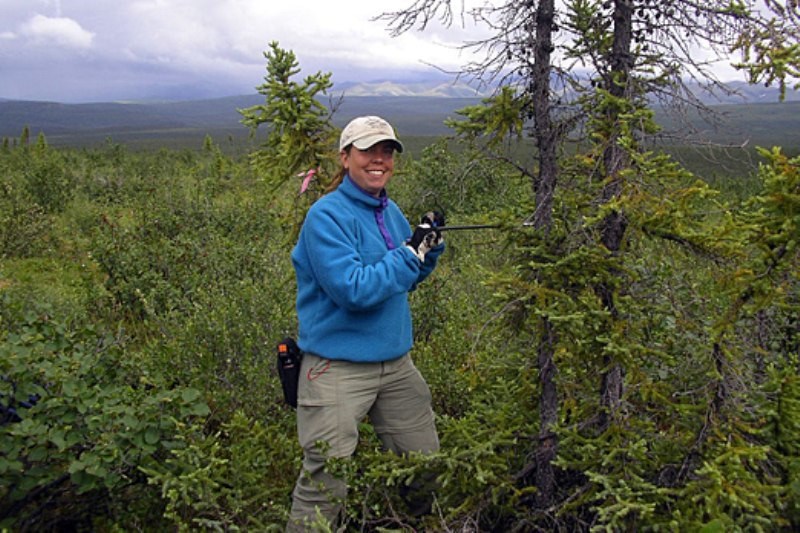Having grown up in Thunder Bay, Carissa Brown felt right at home in the Yukon’s boreal forest.
The 32-year-old Lakehead University graduate started her PhD in 2007. She had to make up her mind on what she wanted to study and when the opportunity came to go to the Yukon, she jumped at the chance.
“The Yukon is one of the most amazing, spectacular places in Canada,” Brown said. “It’s hard to find a place where you feel like you are the first person walking there. The Yukon has those areas. I could have done research in the tundra but I really wanted to stay connected to the boreal forest because that’s what I grew up in. That’s what I’m familiar with growing up in Thunder Bay. I have a real attachment to the boreal forest.”
Brown said her PhD is part of an international study in Arctic research in collaboration with Norway and Russia.
Areas in the Arctic are warming faster than other areas in the world and in the Yukon, the summers are several degrees warmer than they were 40 years ago, she said.
With warmer summers the chances for forest fires increases and can greatly change the area’s habitat, she said.
“I’m looking in an area where forest fires have occurred really close together where the fires have burned within 15 years of each other,” she said. “What happens when fires burn really close to each other is the Black Spruce Forest didn’t regenerate after the first fire. When that second fire came through there was no seeds to start the forest regeneration.”
The forest impacts many animals as well as the environment but in particular, the Black Spruce produces food for wintering caribou and without that available food source, the herds’ diet is limited, she said.
Brown’s passion and dedication to her work didn’t go unnoticed. She won the W. Garfield Weston Awards for Northern Research.
She said she was excited to have that kind of recognition and that people thought her research was interesting.
“The award got me even more excited to do Arctic research,” she said. “I’m really interested in doing my PhD on Arctic ecosystems because they are very sensitive to climate change. The plants that grow there are just barely tolerating the climate that’s there now and when it warms up we expect to see changes fast.”
Sign in or register
- Messages
- Post a Listing
- Your Listings
- Your Profile
- Your Subscriptions
- Your Likes
- Your Business
- Support Local News
- Payment History
Registered Users
Already have an account?
New Users
Create a free account.
